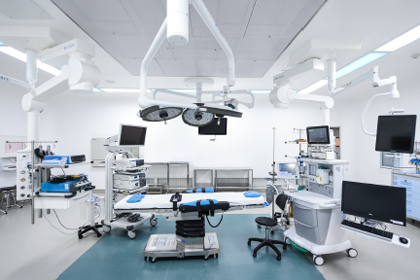Search
Related Articles
What do I need to know about pain management after surgery?
Good control of your pain will help you heal from surgery and return to your normal activities. It will also help you do important activities such as walking and deep breathing. If your pain prevents you from doing these activities, you may be at risk for complications. Examples include a blood clot or pneumonia. Tell your healthcare provider if your pain is not controlled. You may need changes to your medicine or treatment plan.
What medicines may I need to manage pain?
You may need any of the following:
• Acetaminophen decreases pain and fever. It is available without a doctor's order. Ask how much to take and how often to take it. Follow directions. Read the labels of all other medicines you are using to see if they also contain acetaminophen, or ask your doctor or pharmacist. Acetaminophen can cause liver damage if not taken correctly. Do not use more than 4 grams (4,000 milligrams) total of acetaminophen in one day
• NSAIDs, such as ibuprofen, help decrease swelling, pain, and fever. This medicine is available with or without a doctor's order. NSAIDs can cause stomach bleeding or kidney problems in certain people. If you take blood thinner medicine, alwaysask your healthcare provider if NSAIDs are safe for you. Always read the medicine label and follow directions
• Prescription pain medicine may be given. Ask your healthcare provider how to take this medicine safely. Some prescription pain medicines contain acetaminophen. Do not take other medicines that contain acetaminophen without talking to your healthcare provider. Too much acetaminophen may cause liver damage. Prescription pain medicine may cause constipation. Ask your healthcare provider how to prevent or treat constipation
• Anxiety medicine decreases anxiety. High levels of anxiety make pain harder to manage
• Muscle relaxers help decrease pain by relaxing your muscles and preventing spasms
What can I do to manage my pain without medicine?
• Apply heat on your surgery area for 20 to 30 minutes every 2 hours for as directed. Heat helps decrease pain and muscle spasms
• Apply ice on your surgery area for 15 to 20 minutes every hour or as directed. Use an ice pack, or put crushed ice in a plastic bag. Cover it with a towel. Ice helps prevent tissue damage and decreases swelling and pain
• Elevate the painful area above the level of your heart if possible.This will help decrease swelling and pain. Prop your painful area on pillows or blankets to keep it elevated comfortably
• Apply compression with an elastic bandage or abdominal binder as directed. An elastic bandage may be used after surgery on your joint, such as your knee. An abdominal binder may be used for surgeries in your abdomen
• Sleep in a comfortable position, such as upright or on your side. Use pillows to support painful areas
• Ask your healthcare provider about other ways to manage pain without medicine. Examples include relaxation techniques, music, or acupuncture
When should I seek immediate care?
• You have severe pain
When should I contact my healthcare provider?
• Your pain does not get better after take your pain medicine
• You have questions or concerns about your condition or care
CARE AGREEMENT:
You have the right to help plan your care. Learn about your health condition and how it may be treated. Discuss treatment options with your caregivers to decide what care you want to receive. You always have the right to refuse treatment.
Click the link for more information on Anesthesiology Clinical Service
Click the link for more information on Rehabilitation Clinical Service











